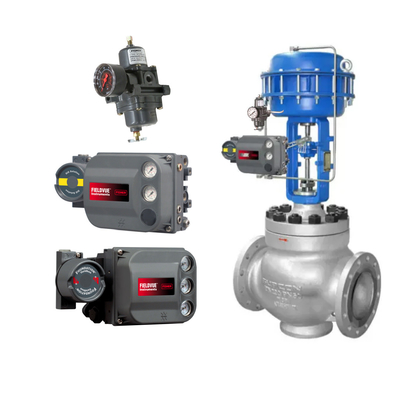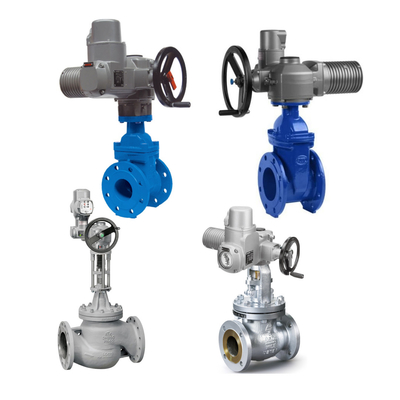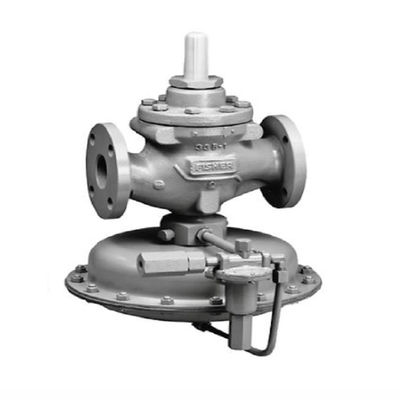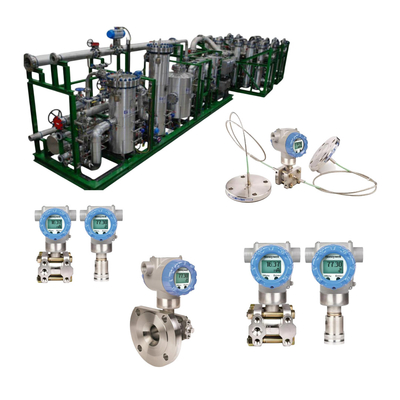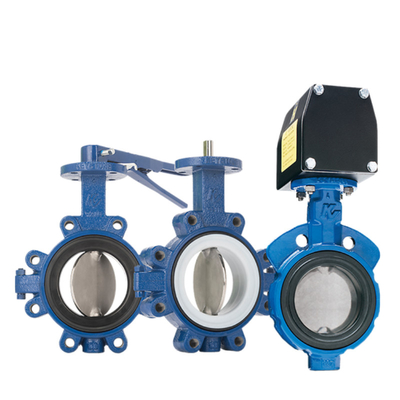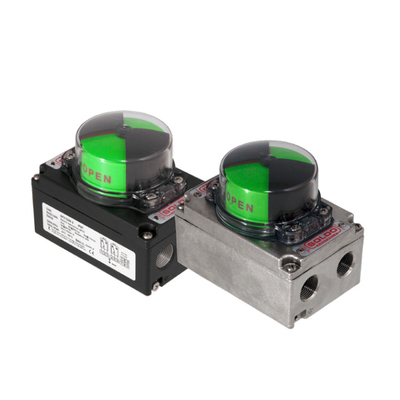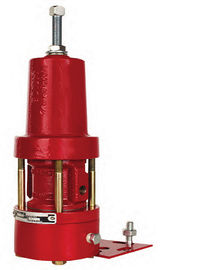Control valves serve as core components in industrial process control, playing an indispensable role across industries such as oil and gas, energy and power, and water and wastewater treatment. According to the market research report "Control Valve Market by Valve Type (Ball Valve, Butterfly Valve, Gate Valve, Globe Valve, Check Valve, Plug Valve), Valve Size, Valve Components (Actuators, Valve Bodies, etc.), Industry (Oil & Gas, Water & Wastewater Treatment, Energy & Power), and Geography—Global Forecast to 2024," the control valve market is projected to grow from USD 7.48 billion in 2018 to USD 10.62 billion by 2024, at a compound annual growth rate (CAGR) of 6.02%. This growth is driven by increased demand for industrial automation, new nuclear power plant construction and expansion projects, and the push for connected networks for equipment monitoring. Emerson, IMI PLC, Flowserve, and Weir Group lead the control valve market, dominating the competitive landscape through technological innovation and global strategies. This article focuses on the market performance of these four companies, combining industry trends, regional analysis, and the unique strengths of Shanghai Gongboshi (Xiangjing) to provide an in-depth exploration of the development dynamics of the control valve market, offering readers practical market insights.
Core Drivers and Corporate Roles in the Control Valve Market
Growth in the control valve market is driven by global energy demand, the adoption of Industry 4.0, and environmental regulations. Emerson, IMI PLC, Flowserve, and Weir Group play pivotal roles in these trends. Emerson's Fisher series control valves enable process digitization through the DeltaV control system, finding extensive application in the oil and gas sector. The company is projected to hold over 20% of the global market share. IMI PLC holds a leading position in the European nuclear power market with its high-pressure control valve technology. Flowserve's Durco and Logix series are renowned for corrosion resistance and low maintenance costs, particularly excelling in water and wastewater treatment. Weir Group specializes in control valves for extreme environments, serving deep-sea drilling and mining sectors.
These four companies have strengthened their competitive advantages through R&D investments and strategic acquisitions. Emerson's IoT technology enables smart control valves to reduce maintenance costs by 30%. IMI PLC enhanced its supply chain capabilities in the Asia-Pacific region through acquisitions. Flowserve and Weir Group meet stringent environmental requirements through modular designs and green technologies. Market data indicates these four companies collectively hold approximately 60% of the global control valve market, reflecting a highly concentrated competitive landscape.
For readers, understanding these companies' competitive strengths aids in formulating procurement and investment strategies. Emerson excels in high-precision digital control scenarios, while Weir Group is better suited for extreme operating conditions. Enterprises should select suppliers based on industry requirements, such as corrosion resistance or intelligence levels.
Oil and Gas Industry: The Main Arena for the Four Giants
The oil and gas industry represents the largest application sector for control valves, projected to maintain the highest market share from 2018 to 2024 with a CAGR of approximately 6.5%. Increased global crude oil production and surging demand for petroleum products in emerging economies like China, India, and Brazil are driving robust control valve procurement. Emerson, IMI PLC, Flowserve, and Weir Group stand out in this field.
In the Asia-Pacific (APAC) region, China's oil production expansion and India's growing offshore exploration activities have created substantial demand for control valves. Emerson's Fisher control valves are widely deployed in new refining and petrochemical projects in China, with their intelligent control features reducing energy waste by 20%. IMI PLC's pneumatic control valves demonstrate exceptional performance on Indian offshore platforms, ensuring production safety through high-pressure resistance. Flowserve's corrosion-resistant valves meet the requirements of Southeast Asian natural gas projects. Weir Group's modular control valves are deployed in emerging Philippine natural gas projects, with their quick-change design reducing downtime by 15%.
The North American market is booming due to shale gas reserve discoveries. Emerson and Flowserve dominate this sector: Emerson's electric control valves enable precise flow control for shale gas extraction, while Flowserve's low-emission control valves comply with North American environmental regulations. Following the oil industry recovery in the Middle East, demand for control valves has grown across the entire upstream-to-downstream spectrum. Weir Group's high-pressure control valves excel in deepwater drilling operations in the region, while IMI PLC's solutions dominate midstream pipeline transportation.
For investors and procurement managers, valve demand in the oil and gas sector presents stable growth opportunities. Focus on Emerson and Flowserve's technological strengths in North America, alongside IMI PLC and Weir Group's localized strategies in APAC and the Middle East. Geopolitical tensions and oil price volatility may disrupt supply chains, requiring careful assessment.
Actuator Market: A Focus for Corporate Technological Innovation
Actuator components for control valves represent a key growth area in the market, with a projected CAGR exceeding 7% from 2018 to 2024. Actuators convert control signals into mechanical motion, serving as the core technology for intelligent control valves. Emerson, IMI PLC, Flowserve, and Weir Group each hold significant expertise in actuator technology.
Emerson's electric actuators integrate IoT technology, enabling real-time monitoring via cloud platforms and finding widespread application in energy and power sectors. IMI PLC's pneumatic actuators are renowned for high responsiveness, making them suitable for high-frequency operations in nuclear power plants, where they hold approximately 25% market share in Europe's nuclear energy sector. Flowserve's electro-hydraulic actuators are optimized for corrosive environments in chemical industries, offering 30% enhanced durability. Weir Group introduced compact pneumatic actuators for rotary shaft control valves, simplifying installation and making them suitable for offshore platforms.
Pneumatic actuators remain dominant due to their low cost and rapid response, but electric and electro-hydraulic actuators are gaining favor for their intelligent features and energy efficiency. Emerson and Flowserve's electric actuators meet stringent environmental standards, reducing carbon emissions by 10%. Modular designs of pneumatic actuators from IMI PLC and Weir Group lower maintenance costs.
When selecting actuators, readers should weigh options based on application scenarios. Pneumatic actuators suit oil and gas industries, while Flowserve's electro-hydraulic actuators are preferable for water treatment. Enterprises must focus on total cost of ownership (TCO)—including energy consumption and maintenance expenses—to optimize return on investment.

WEIR Knife Gate Valves
Regional Market Analysis: Global Footprint of Four Major Players
The Asia-Pacific (APAC) region held the largest share of the control valve market in 2017 and is projected to lead with a 6.5% CAGR from 2018 to 2024. Strategic deployments by Emerson, IMI PLC, Flowserve, and Weir Group in APAC are driving growth. Industrialization waves in China and India, particularly investments in energy and power, oil and gas, and water and wastewater treatment sectors, are creating substantial demand for control valves.
Emerson excels in localized production capabilities in China, with Fisher control valves deployed in new coal-fired and nuclear power projects. IMI PLC expands its market share in water treatment and chemical sectors through partnerships with Indian enterprises. Flowserve's corrosion-resistant control valves dominate Southeast Asian water treatment projects, while Weir Group leverages mining and oil & gas expertise to enter emerging projects in the Philippines and Indonesia.
The North American market is innovation-driven, with Emerson and Flowserve leading. Emerson's smart control valves, utilizing sensors and cloud platforms, help shale gas companies reduce operational costs by 20%. Flowserve's low-emission control valves comply with North American environmental regulations. The European market prioritizes sustainability, with IMI PLC and Weir Group performing strongly. IMI PLC's nuclear power control valves hold a position in the UK and France, while Weir Group's green valve technology supports European water treatment projects.
The Middle East and Africa market is growing rapidly due to the oil industry recovery. Weir Group's high-pressure control valves are widely used in deep-sea drilling in the Middle East, and Emerson's digital solutions dominate midstream pipeline transportation. Flowserve and IMI PLC capture market share in the region's water treatment and chemical projects.
For readers, APAC holds the greatest growth potential, with localized production recommended to reduce costs. North America and Europe should focus on intelligent and green technologies. Investment decisions should align regional policies with corporate technical strengths, selecting high-precision products from Emerson and Flowserve or durable solutions from IMI PLC and Weir Group.
Shanghai Xiangjing: Premium Service Provider in the Control Valve Industry
Xiangjing a professional service provider with over two decades of deep expertise in the control valve industry, specializes in the oil and gas sector. We offer premium control valve products from internationally renowned brands such as Emerson, IMI PLC, Flowserve, and Weir Group, alongside other high-end brands from around the world. Leveraging extensive industry experience, Gongboshi delivers customized valve solutions and technical services to ensure efficient equipment operation.
Xiangjing demonstrates particular strength in the oil and gas sector, supplying high-pressure and corrosion-resistant control valves that meet diverse requirements across upstream exploration, midstream transportation, and downstream refining/petrochemical operations. For instance, Emerson Fisher control valves distributed by Xiangjing achieve precise flow control in Chinese refining projects, reducing energy consumption by 20%. Weir Group's high-pressure control valves ensure safe operation in deep-sea drilling projects. Engineer Doctor also delivers comprehensive after-sales support, including installation guidance, remote diagnostics, and maintenance services, helping clients reduce downtime by 30% and enhance service experiences.
For customers, Engineer Doctor not only supplies high-quality control valves but also optimizes process control and lowers total cost of ownership through technical consulting and customized solutions. Whether in nuclear power, water treatment, or chemical industries, Engineer Doctor provides one-stop solutions to empower clients toward efficient, sustainable operations.
Market Competition and Future Outlook
Emerson, IMI PLC, Flowserve, and Weir Group dominate the control valve market through technological innovation and globalization strategies. Emerson's digital transformation positions it as a leader in smart control valves, with a projected 22% market share by 2024. IMI PLC solidifies its European market position through nuclear power and energy expertise.
Flowserve's green technologies and corrosion-resistant products align with environmental trends, while Weir Group's modular designs excel in extreme environment applications.
Shanghai Gongboshi, as a premium service provider, collaborates with these giants to deliver localized support and efficient solutions. The future of the control valve market will shift toward intelligent and green technologies. Emerson and Flowserve's IoT and low-emission solutions will lead the industry, while IMI PLC and Weir Group's modular and localized strategies will enhance competitiveness in emerging markets. Gongboshi will continue integrating global resources to provide smarter, greener control valve solutions.
Market challenges include raw material price volatility and supply chain disruptions, with diversification and regional partnerships recommended as countermeasures. For investors, key focus areas in the control valve market include: AI-driven intelligent valves; emerging applications like hydrogen energy and carbon capture; and localized production in the APAC market. Collaborations between Emerson, IMI PLC, Flowserve, Weir Group, and Xiangjing will offer diversified options for investors and buyers.

 Your message must be between 20-3,000 characters!
Your message must be between 20-3,000 characters! Please check your E-mail!
Please check your E-mail!  Your message must be between 20-3,000 characters!
Your message must be between 20-3,000 characters! Please check your E-mail!
Please check your E-mail! 
